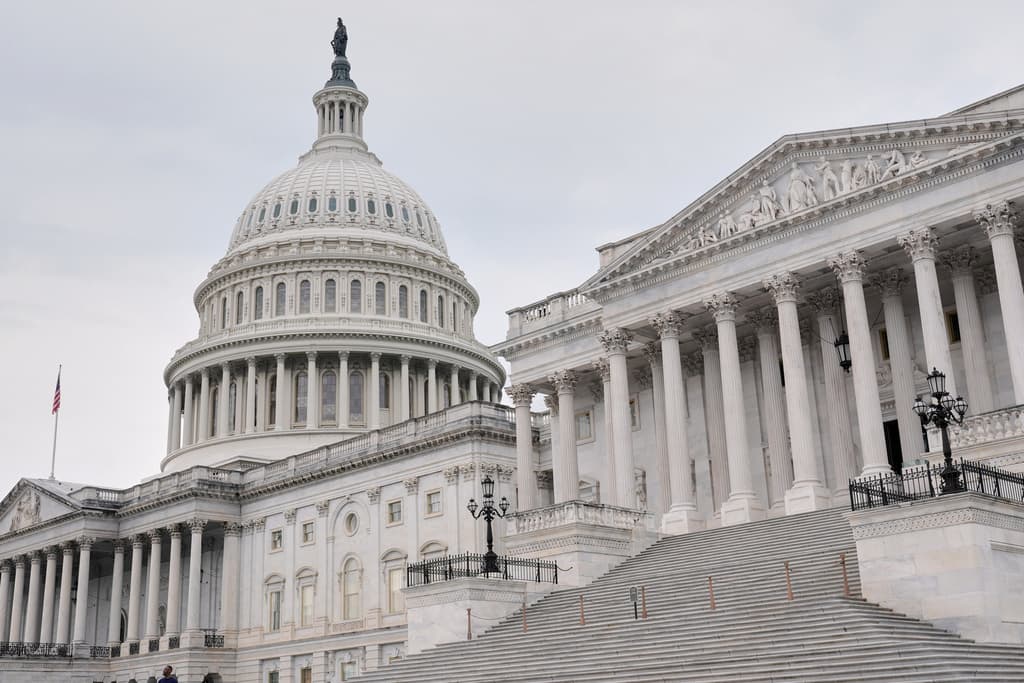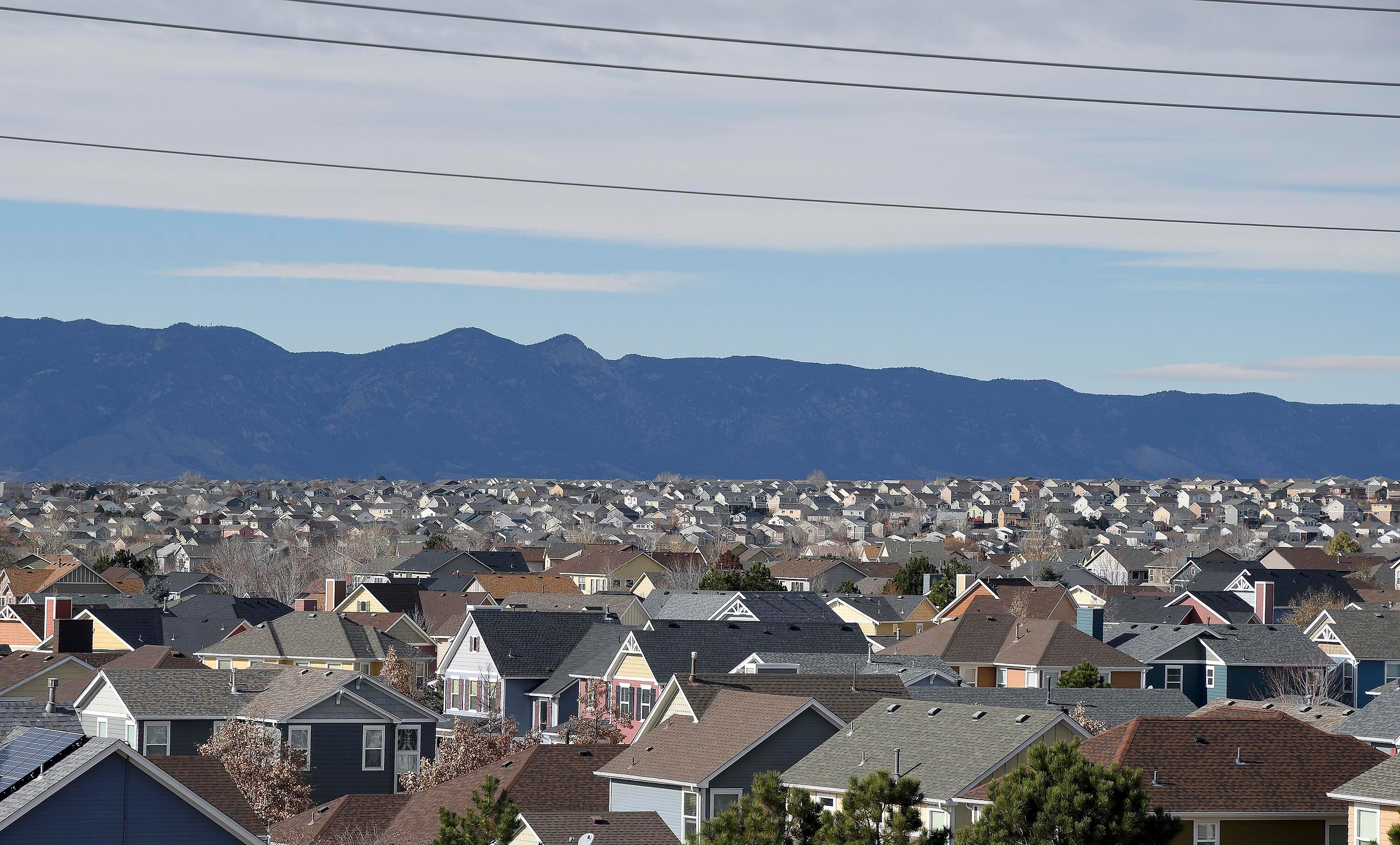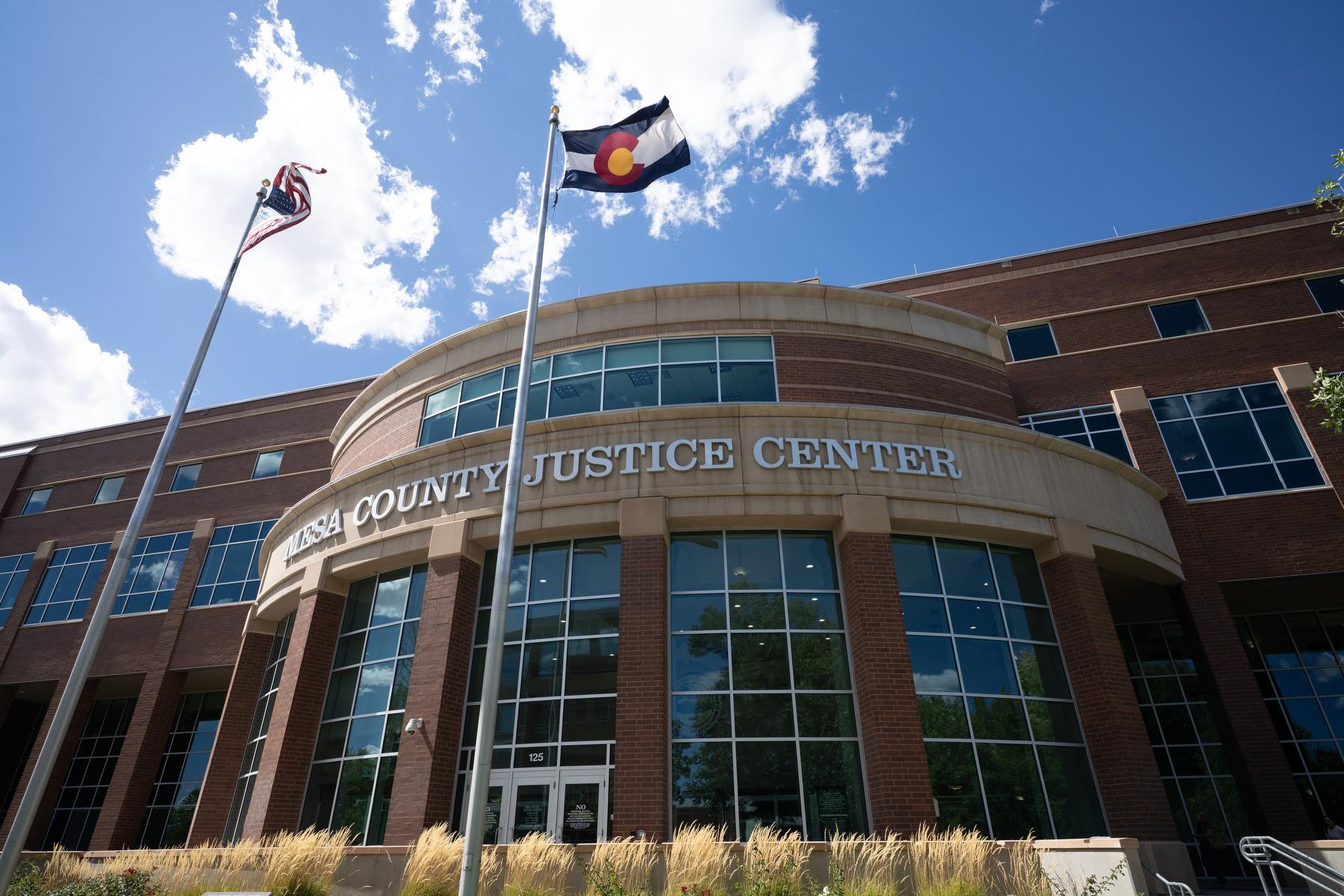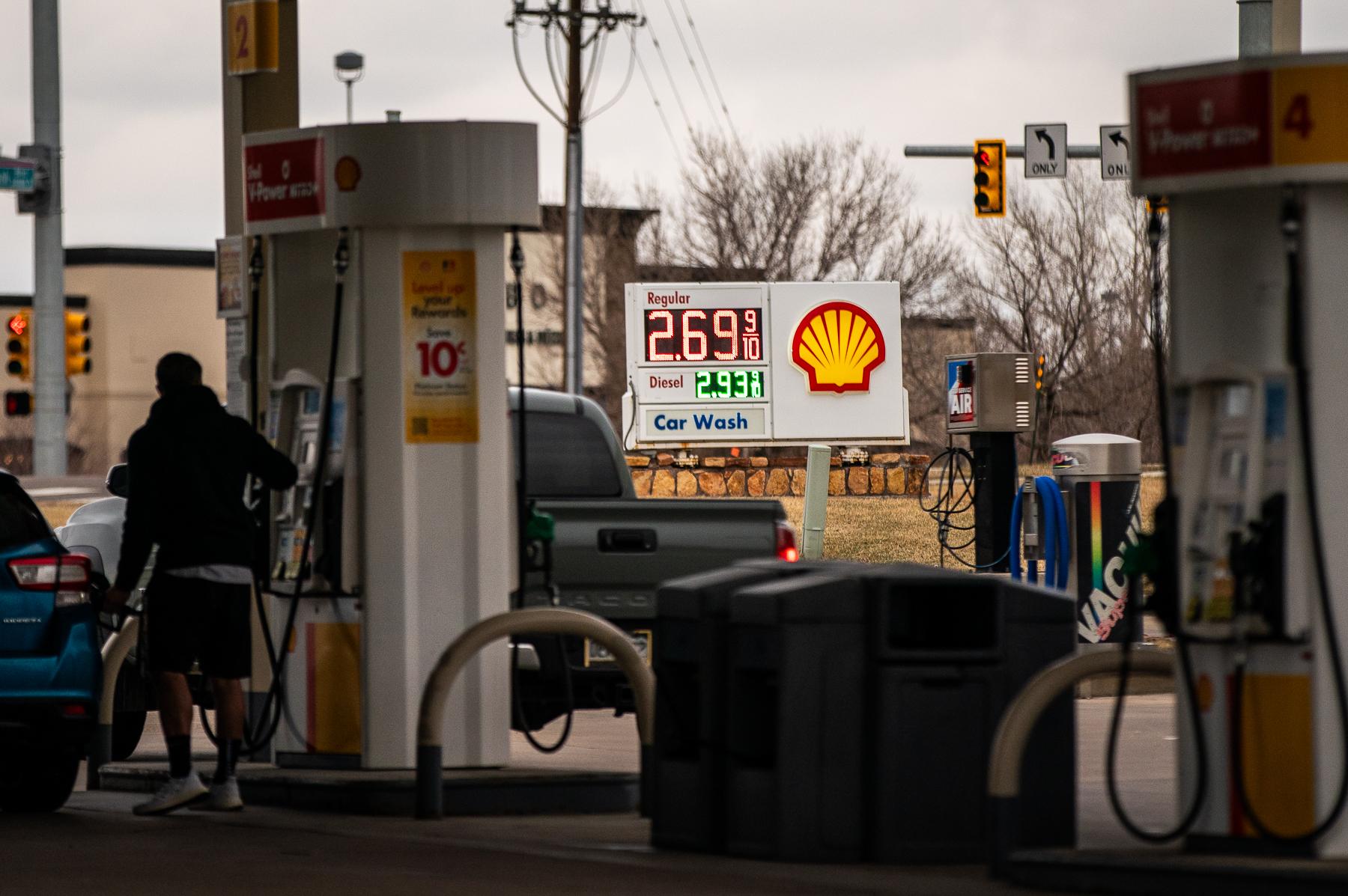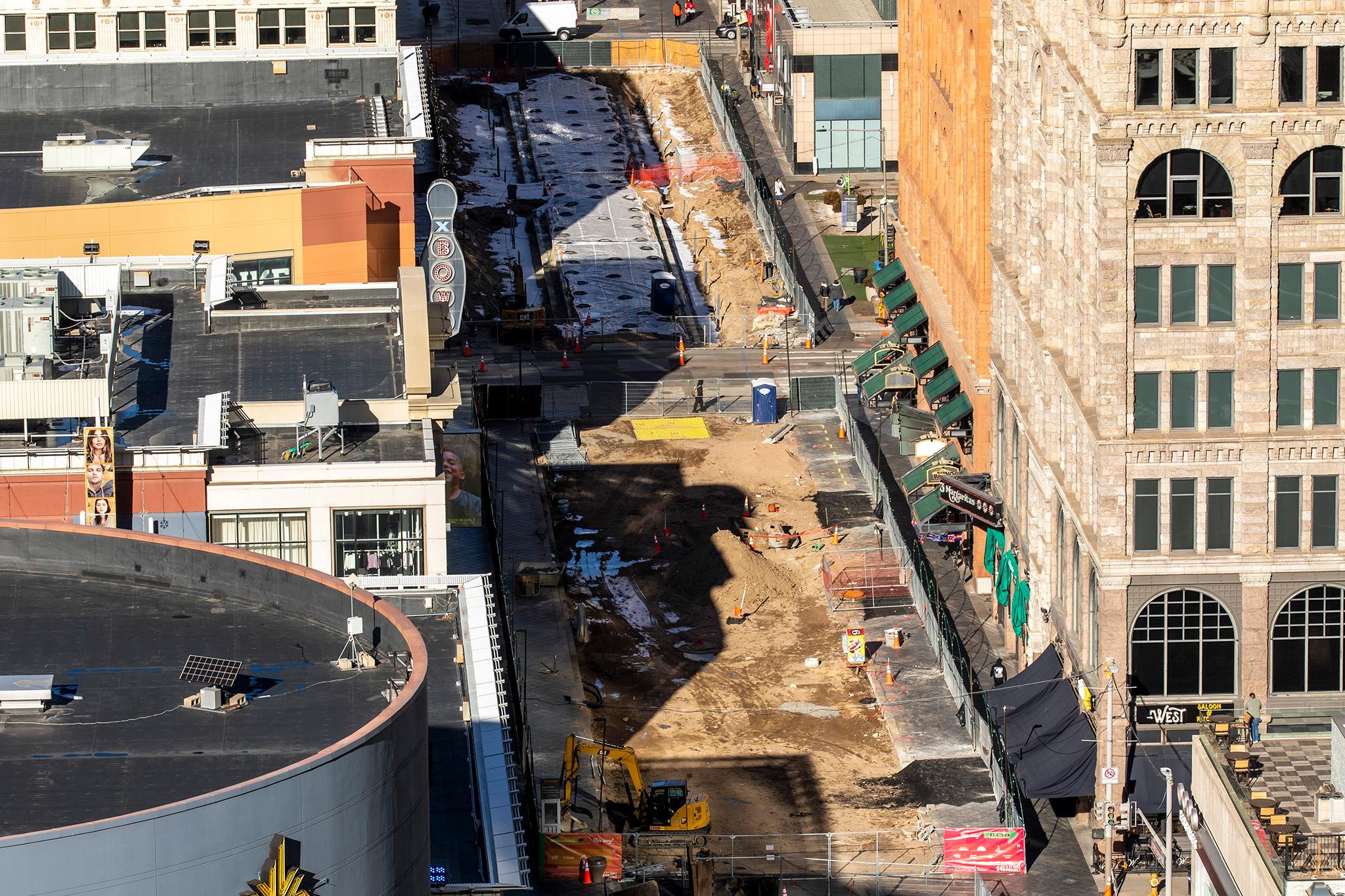
After more than two years of nonstop construction to revamp the iconic pedestrian mall, business owners on Denver’s 16th Street Mall could see some relief in the coming months.
“We think that we can see the light at the end of the tunnel at this point,” Mayor Mike Johnston said while speaking at the mall’s Blue Agave Grill. “We’re going to start opening blocks as early as this summer.”
Johnston was speaking during a downtown walking tour with Isabel Casillas Guzman, the head of the U.S. Small Business Administration. Administrator Guzman came to town to mark National Small Business Week.
Small businesses on the 16th Street Mall have had a tough time in recent years. The crowds haven’t really come back since the pandemic emptied out downtown more than four years ago. The rise of remote work has hollowed out many office buildings in the area. At the same time, the overhaul of the 16th Street Mall has made the streets hard to navigate.
Sales at Blue Agave are down more this year than they were when the construction first started, said Brenda Lucio, the owner of Blue Agave. The loss of the patio has been a big drag on business, she said.
“I think it’s because people learn to avoid the area,” she said.
But the overhaul needed to be done, she said.
“We think the 16th Street renovations that are being done are going to bring a lot more life and energy down here,” she said.
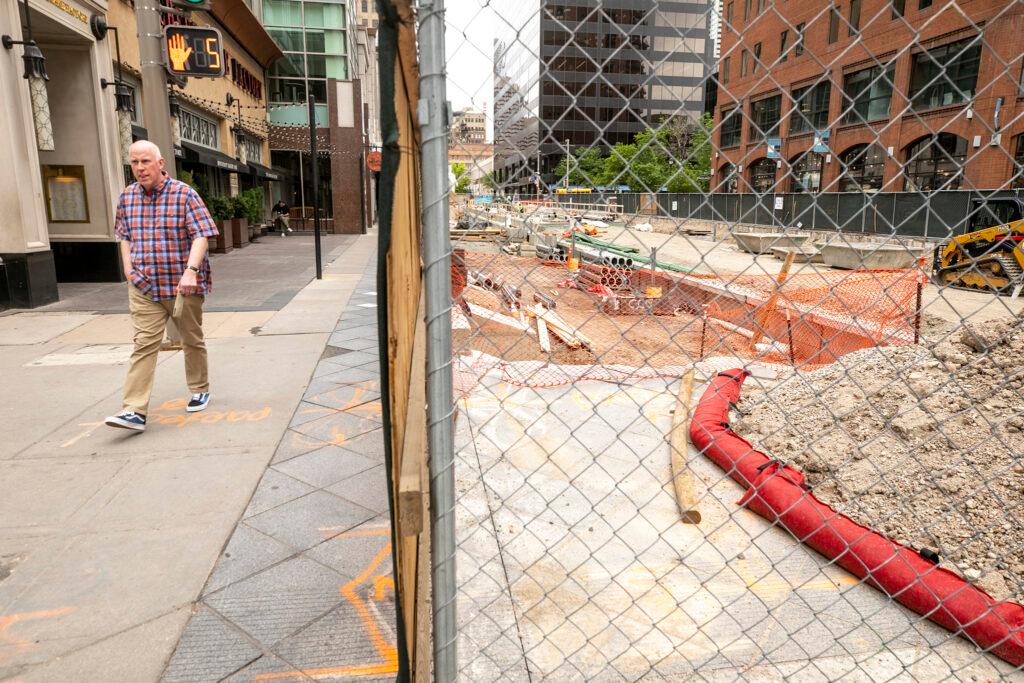
The mall isn’t the only thing that needs an upgrade downtown. Empty office space is piling up, which adds to the desolate feeling in the area.
“We have an incredible sense of urgency about how we both get people back to work in person. how we get more commercial space filled,” Johnston said. “How do we move this from being not just a commercial business district, but really we want it to be a neighborhood district. We want this to be a place where people live and work and play.”
There are proposals to turn the empty office space into apartments, but those plans haven’t gotten off the ground.
“You need to be able to have resources to be able to make those conversions happen … If you convert commercial to residential at a market rate, they’re going to be very expensive units. It’s hard to do those conversions,” Johnston said. “We’re working on plans we can do in partnership – kind of public-private partnership – that would allow us to both convert those units and still keep them affordable.”

